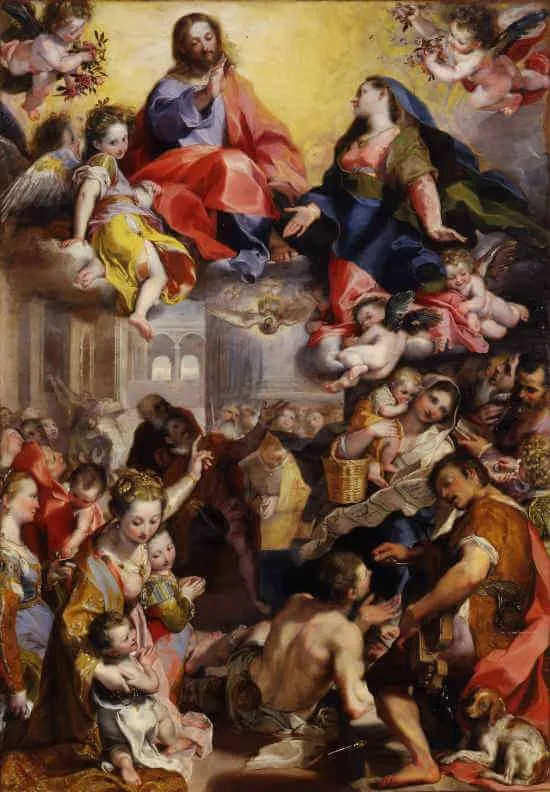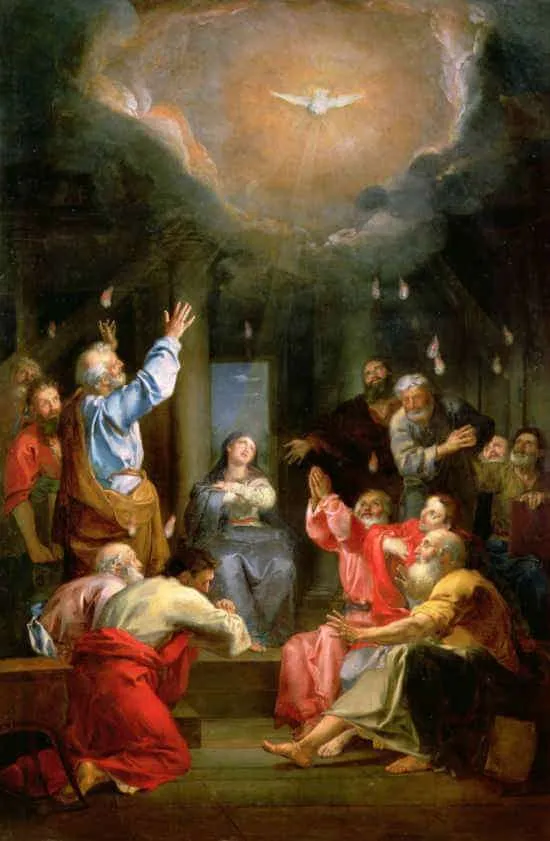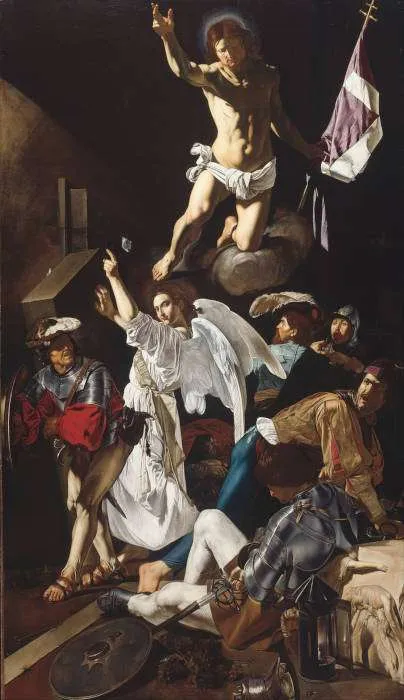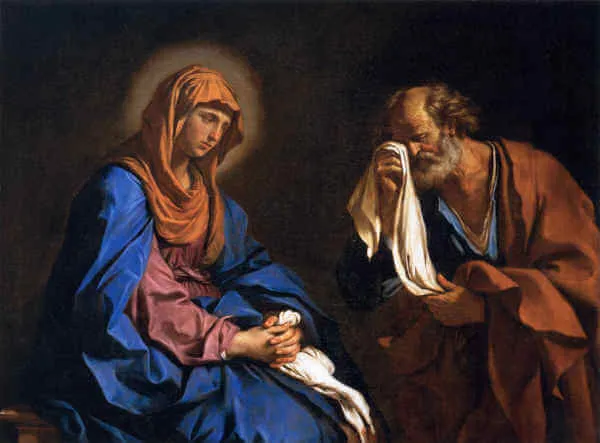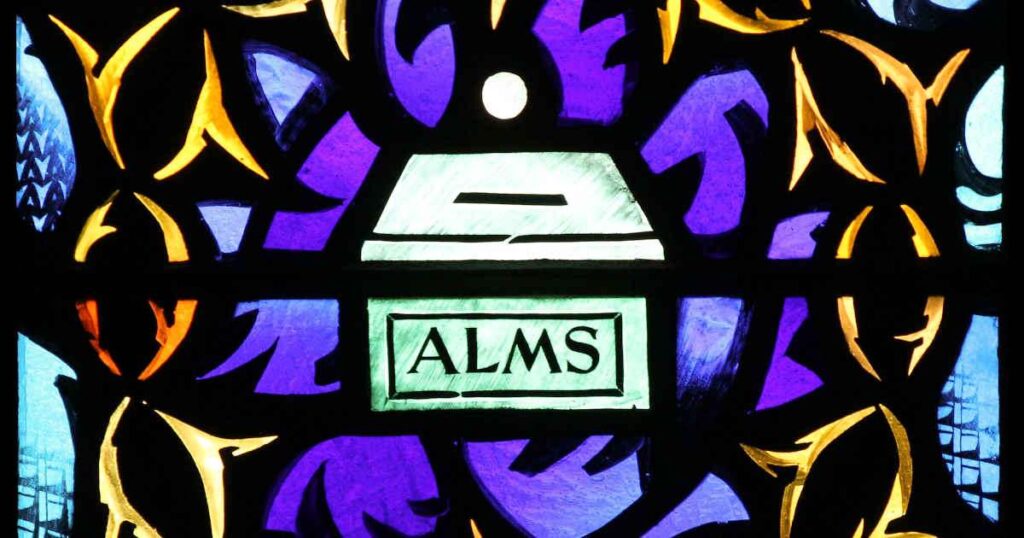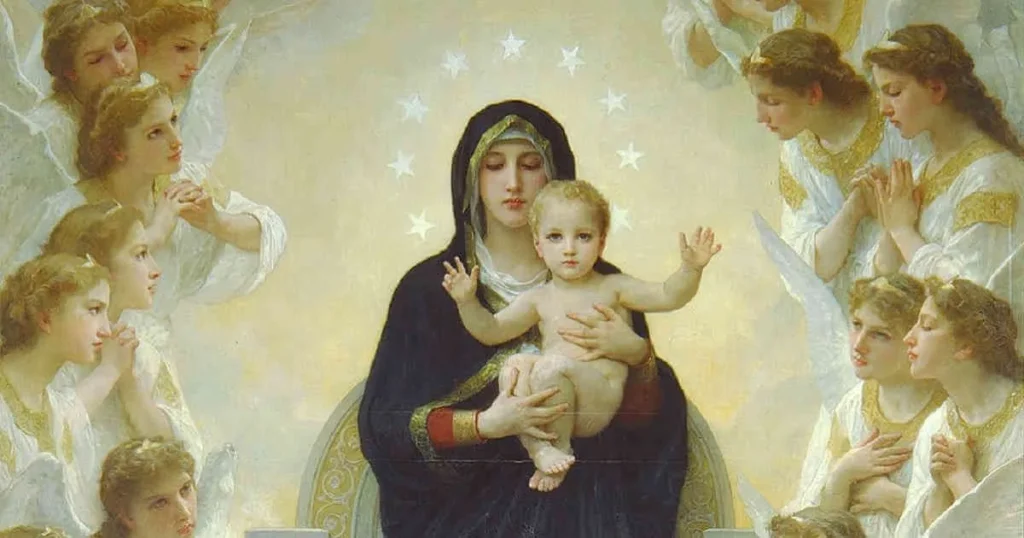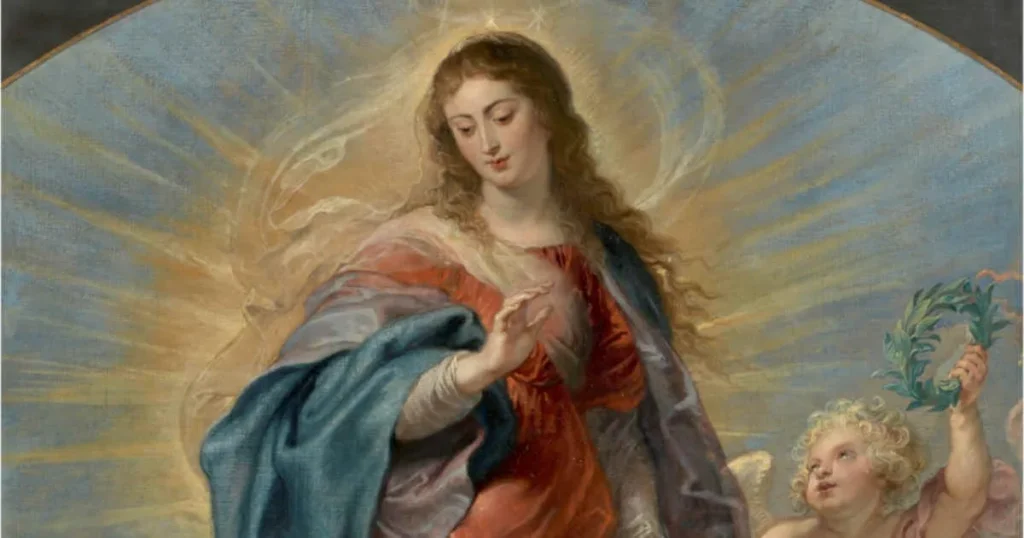Blessed Virgin Mary, Mother of the Church
Little is said about the most glorious Mother of God in the Scriptures. In many ways, she lived a quiet and hidden life. Since her Assumption into Heaven, the Church has prayerfully pondered her life and role in the mystery of salvation. Little by little, saint after saint and pope after pope have shed greater light upon her singularly unique and glorious role in the Father’s eternal plan. As the Church’s understanding of the Blessed Mother has deepened, new titles and new dogmas have been proclaimed about Mary. In 2018, a new liturgical memorial honored her with the title “Blessed Virgin Mary, Mother of the Church.”
To understand the Blessed Virgin Mary’s role as Mother of the Church, we need to begin with Scripture. As Jesus hung on the Cross, John’s Gospel records that the mother of Jesus and two other women stood before Him, alongside John, the disciple whom Jesus loved. From the Cross, Jesus entrusted His mother to John’s care. “When Jesus saw his mother and the disciple there whom he loved, he said to his mother, ‘Woman, behold, your son.’ Then he said to the disciple, ‘Behold, your mother.’ And from that hour the disciple took her into his home” (John 19:26–27).
In 1895, in his encyclical on the rosary, Pope Leo XIII wrote about that Gospel passage:
Now in John, as the Church has constantly taught, Christ designated the whole human race, and in the first rank are they who are joined with Him by faith…She was, in very truth, the Mother of the Church, the Teacher and Queen of the Apostles, to whom, besides, she confided no small part of the divine mysteries which she kept in her heart” (Adiutricem #6).
In 1964, Pope Saint Paul VI promulgated the Vatican II document Lumen Gentium (Dogmatic Constitution on the Church). After presenting a complete picture of the mystery of the Church, the final chapter of that constitution presents “The Blessed Virgin Mary, Mother of God in the Mystery of Christ and the Church.” That chapter highlights her singularly unique and maternal role within the Church. Lumen Gentium did not go so far as to ascribe the title “Mother of the Church” to the Blessed Mother, but it did go into great detail about her maternal role within the Church. Four years later, in a motu proprio letter, Pope Paul VI referenced Lumen Gentium and took it a step further by bestowing upon the Mother of God the title “Mother of the Church.”
…we believe that the Blessed Mother of God, the New Eve, Mother of the Church, continues in heaven her maternal role with regard to Christ’s members, cooperating with the birth and growth of divine life in the souls of the redeemed (Solemni Hac Liturgia #15).
Since that time, Pope John Paul II, Pope Benedict XVI, and Pope Francis have continually referred to the Mother of God as the Mother of the Church. What does the title “Mother of the Church” mean? On September 17, 1997, Pope John Paul II defined it this way in a Wednesday catechesis:
The title “Mother of the Church” thus reflects the deep conviction of the Christian faithful, who see in Mary not only the mother of the person of Christ, but also of the faithful. She who is recognized as mother of salvation, life and grace, mother of the saved and mother of the living, is rightly proclaimed Mother of the Church. (#5).
On March 3, 2018, Pope Francis announced that a new memorial would be added to the General Roman Calendar and celebrated on the Monday after Pentecost Sunday, entitled “The Blessed Virgin Mary, Mother of the Church.”
In the decree instituting this memorial, Cardinal Robert Sarah, Prefect of the Congregation for Divine Worship, said:
This celebration will help us to remember that growth in the Christian life must be anchored to the Mystery of the Cross, to the oblation of Christ in the Eucharistic Banquet and to the Mother of the Redeemer and Mother of the Redeemed, the Virgin who makes her offering to God.
It is significant that the Blessed Virgin Mary, Mother of God, was entrusted to the Church in the person of Saint John the Apostle at the foot of the Cross. From the Cross, the Church was conceived by the outpouring of grace that flowed from Jesus’ Sacred Heart. At Pentecost, our Blessed Mother was present as the Church was born.
Today, the Mother of the Church reigns in Heaven next to her Son; from there, she continues to nurture the Church as a loving mother. She not only intercedes for us but also mediates her Son’s saving grace, making her the ongoing instrument of grace and mother of all.
Because our understanding of the role of the Blessed Virgin Mary has continually unfolded over the centuries, it is fair to say that we do not yet fully understand her glorious role in the Father’s plan of salvation. Some have proposed that she be given the dogmatic titles “Mediatrix of All Grace” and “Co-Redemptrix.” Regardless of what comes next in our ever deepening understanding of the role of the Blessed Mother, we can be certain that those who one day gaze upon the essence of God Himself as he reveals all truth will immediately become aware of the most profound mysteries of Mary’s hidden life.
As we honor the Blessed Virgin Mary, Mother of the Church, know that she is your spiritual mother insofar as you are a member of Christ’s Body, the Church. By giving birth to the Head, she gives birth to the members. As members of that Body, it is essential that we seek spiritual nourishment from the Blessed Virgin Mary. She is our mother and queen. From her, we are born into God’s grace. She is the chosen instrument and mediatrix of grace. Rely upon her motherly intercession and mediation, and entrust yourself more fully to her care.
Source: https://mycatholic.life/saints/saints-of-the-liturgical-year/mary-mother-of-the-church-memorial/
Blessed Virgin Mary, Mother of the Church Read More »


